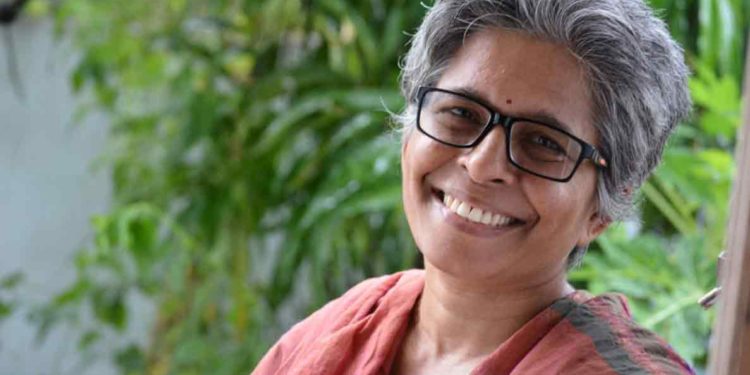In the annual digital publication of Earth Day (a global NGO), titled, ‘Climate Literacy: Beyond the Written Word’, an online radio from Vizag, School Radio’s contributions towards effective methodologies to promote out-of-the-box thinking amongst children and youth have been featured. This e-book by Earth Day, the internationally reputed NGO describes the innovative methods adopted by School Radio and suggests their incorporation.
Speaking to Yo! Vizag, School Radio’s Managing Partner, Aruna Katragadda, shares her joy in being able to reach international audiences. “When the Covid-19 pandemic struck the world, everything came to a standstill, but we at School Radio continued the training programme. The production team was also working incessantly. We are happy that we could be heard even during those turbulent times and now that an internationally reputed NGO has featured us, School Radio’s initiatives reach more children and youth in the world.”
Here is an excerpt from the School Radio’s feature in the Earth Day e-book. “Aruna says, ‘These young broadcasters are change-makers. Their efforts help alter their lifestyle to be more environmentally friendly.’ She happily shares that ‘after prolonged experimentation and preservation efforts, our network has expanded from Visakhapatnam, a city in Andhra Pradesh, where we began, to twenty Indian states and four countries. Hundreds of children, youths and teachers take part in our programmes. We look forward to sharing School Radio programmes not just with hundreds, but millions soon.’”
You can read the entire feature article from the Earth Day e-book titled – ‘Climate Literacy: Beyond the Written Word’ for free here.
School Radio
School Radio is an online radio for schools, colleges and universities. It offers a platform for young minds to create their own content in any medium, language, and exposes them to find solutions to pertinent issues. School Radio endeavours to teach and enhance 21st Century skills, life skills and soft skills of children and youth.
The Journey of School Radio
School Radio started on 13 February, 2015, in Vizag, the day that marks World Radio Day. With radio being pushed into the background and technology bringing visual media to many homes, Aruna was quick to see the gamut of opportunity this medium still had. Seeing opportunities, and owing to low cost and wider reach through the Internet, School Radio started to target school going children via programmes created by peers of their age groups.
With awareness on the radio being low, a lot of time and energy also had to be expended in convincing people of its feasibility and importance. But for Aruna, who was new to this line, mastering the intricacies was a learning process. She also opined that the end truly justifies the means. After a successful pilot project in ten schools, the three-day programme was polished further and taken to other schools. “Till date, 4,500 students, 330 teachers have been trained, not just in Andhra Pradesh, but in Telangana, Uttar Pradesh and Maharashtra as well. Apart from the training programme, School Radio also reaches parts of the globe with content that is generated from over 20 states in India and 7 foreign countries. In fact, students pursuing graduation and post-graduation courses are also part of School Radio,” says Aruna. She is proud of the journey so far and also adds an enduring fact that the School Radio is incubated at IIMV – FIELD, Indian Institute of Management, Visakhapatnam & Nadathur Sarangapani Raghavan Centre for Entrepreneurial Learning (NSRCEL), Indian Institute of Management, Bengaluru (IIMB).
About Earth Day Organization
Earth Day is the largest civic observer in the world with more than one billion people participating in the organisation’s activities each year. Its mission is to diversify, educate, and activate the environmental movement worldwide. The Earth Day organisation was initiated on the first Earth Day in 1970. It is the world’s largest recruiter and partners with over 1,50,000 organisations in nearly 192 countries to build environmental democracy.




Discussion about this post